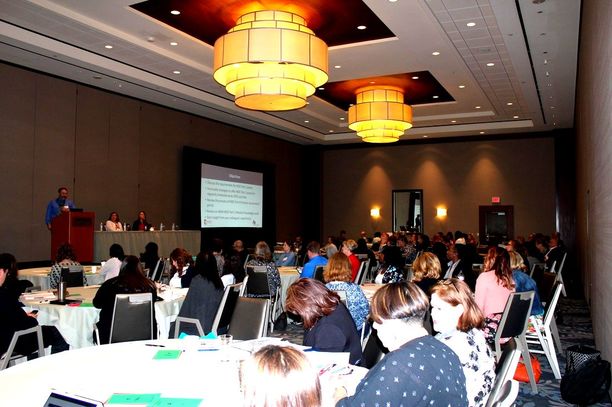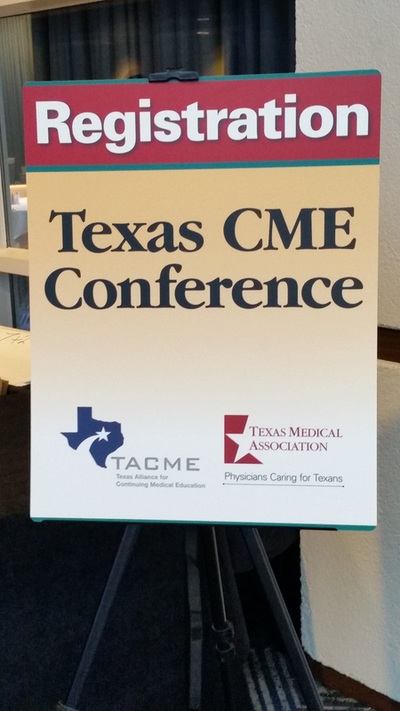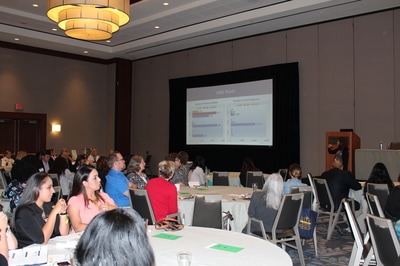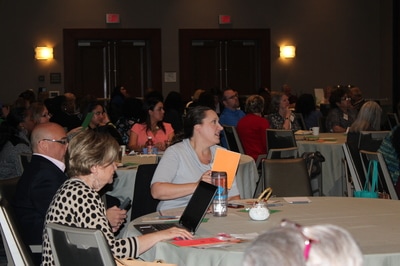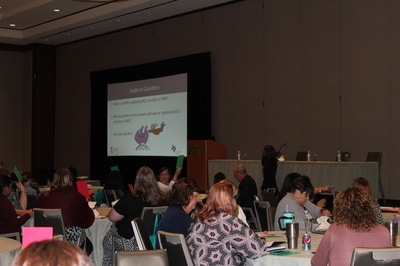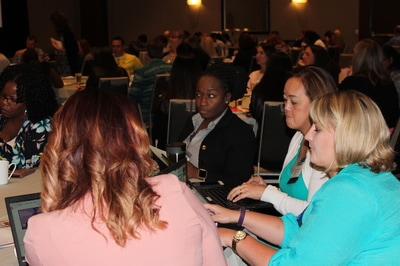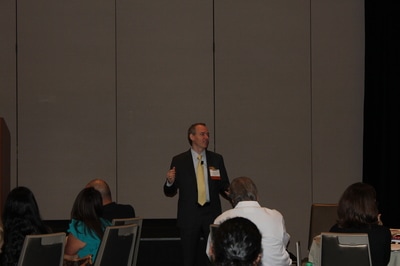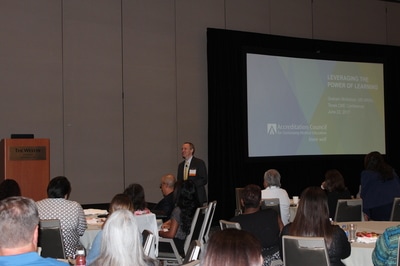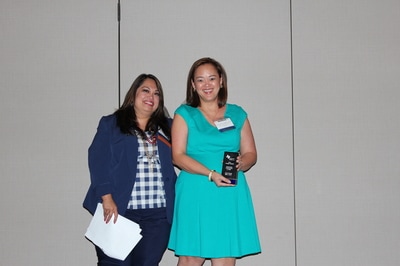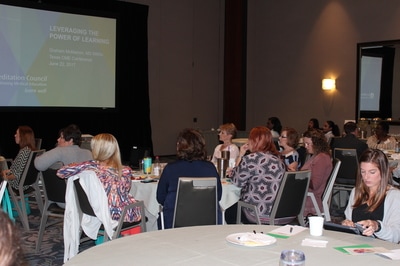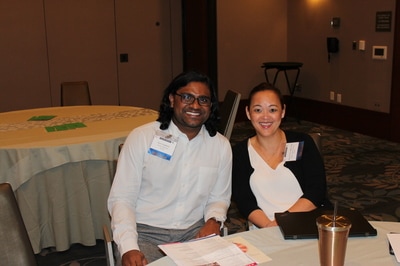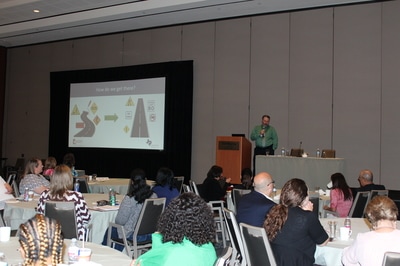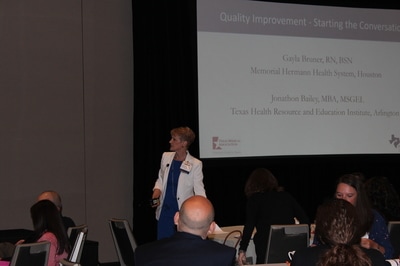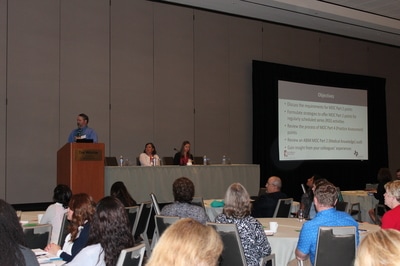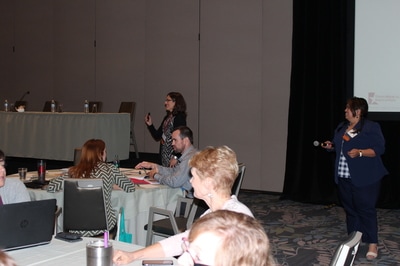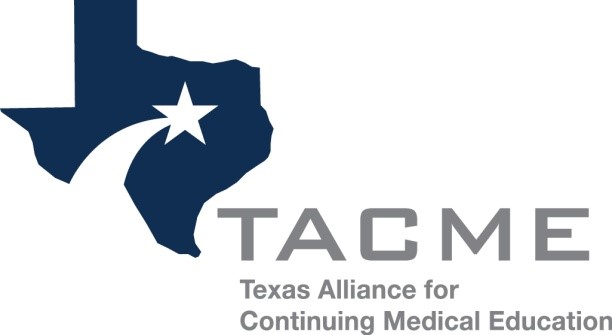Member Login  Hi, (First Name)
Hi, (First Name)  | Log Out
My Profile
Not a member? Sign up.
Log Out
| Log Out
My Profile
Not a member? Sign up.
Log Out
Member Login
Welcome, (First Name)!
Enter Member Area
(Message automatically replaces this text)
OK
2017 Texas CME Conference
Taking CME to the Next Level - Getting You Prepared for the Future
June 21-23, 2017
Houston, Texas
Houston, Texas
-
Highlights and Photos
-
Texas CME Conference Overview
<
>
June 21-23, 2017
The Westin Hotel, Memorial City
945 Gessner Road
Houston, TX 77024
AGENDA
Wednesday, June 21 3-5 pm
CME Basics — For All Levels of Experience
Paige Green, MEd, Texas Medical Association, Austin
Casey Harrison, MBA, Texas Medical Association, Austin
3-5 pm Accreditation With Commendation — Winning Ideas From 2016
Facilitator: Jen Cabrera, BSBM, MBA, Cook Children’s, Fort Worth
Panelists: Elaine Allbritton, Texas Heart Institute, Houston
Amanda Garzoria, CPCS, Valley Regional Medical Center
Dina Gonzales, American College of Emergency Physicians, Irving
Karen Hinson, MPH, The Woman’s Hospital of Texas
David Madrigal, MHA, CHCP, Iasis Healthcare Corporation, Houston
Sue Mullen, Baptist Health System, San Antonio
Michal Pierce, MS, ASQ CMQ/QE, Harris County Institute of Forensic Sciences, Houston
Elizabeth Strauch, MD, FACP, FAAHPM, Houston Hospice
Thursday, June 22
9-10:15 am Mark Gregg Memorial Distinguished Lecture – Evolution, Alignment and Innovation in CME
Graham McMahon, MD, MMSc, Accreditation Council for Continuing Medical Education, Chicago
10:45-11:45 am Using Commendation Criteria as Educational Strategy
Graham McMahon, MD, MMSc, Accreditation Council for Continuing Medical Education, Chicago
1-2 pm CME for MOC: Expanding the Possibilities - What You Need to Know and What You Need to Show
Casey Harrison, MBA, Texas Medical Association, Austin
2-3 pm CME for MOC: Successful Stories and Practical Strategies for Integrating CME for MOC in Your Organization
Facilitator: Jonathon Bailey, MBA, MSGEL, Texas Health Research and Education Institute, Arlington
Leticia Zuniga Bresnahan, MBA, The University of Texas Health Science Center, San Antonio
Alison Brunner, Texas Health Research and Education Institute, Arlington
3:30-4:30 pm Concurrent Professional Development Workshops
Novice: Test Your Knowledge - Compliance vs. Noncompliance
Paige Green, MEd, Texas Medical Association, Austin
Casey Harrison, MBA, Texas Medical Association, Austin
Intermediate/Advanced: Putting MOC into Action in Your Organization — Working Through the Process
Jonathon Bailey, MBA, MSGEL, Texas Health Research and Education Institute, Arlington
Leticia Zuniga Bresnahan, MBA, The University of Texas Health Science Center, San Antonio
Alison Brunner, Texas Health Research and Education Institute, Arlington
Pre-work — to take full advantage of the workshop, before the session, consider an activity you currently offer for AMA PRA Category 1 Credit™, but would be interested in registering for MOC points.
Intermediate/Advanced: Exploring the New Menu of Accreditation With Commendation Criteria — Highlights,
A-ha Moments, and Strategies from the 2017 ACCME Meeting
Anne Perch, MBA, Baylor College of Medicine, Houston
Chris Ralls, MBA, PMP, CHCP, Houston Methodist
Friday, June 23
8:30-9:45 am Starting the QI Conversation
Jonathon Bailey, MBA, MSGEL, Texas Health Research and Education Institute, Arlington
Gayla Bruner, RN, BSN, Memorial Hermann Health System, Houston
10-11 am Concurrent Professional Development Workshops
Novice: A Complete Guide to the CME Survey Process
Paige Green, MEd, Texas Medical Association
Casey Harrison, MBA, Texas Medical Association
Intermediate/Advanced: Plenary Workshop — Develop a QI Activity
Jonathon Bailey, MBA, MSGEL, Texas Health Research and Education Institute, Arlington
Gayla Bruner, RN, BSN, Memorial Hermann Health System, Houston
Intermediate/Advanced: Growing an Online CE Program With Limited Resources
Angela Gomez, PhD, BCBE, Cardinal Health Innovative Delivery Solutions
11-11:45 am Year in Review
Jen Cabrera, BSBM, MBA, Cook Children's
Casey Harrison, MBA, Texas Medical Association, Austin
The Westin Hotel, Memorial City
945 Gessner Road
Houston, TX 77024
AGENDA
Wednesday, June 21 3-5 pm
CME Basics — For All Levels of Experience
Paige Green, MEd, Texas Medical Association, Austin
Casey Harrison, MBA, Texas Medical Association, Austin
- By participating in an interactive format and to which all levels of experience are invited to participate, newcomers to CME should be able to (1) describe the accreditation requirements and policies of TMA and ACCME accreditation systems; (2) discuss the environment of CME; and (3) hear from experienced CME colleagues to formulate strategies and gain insights to create or improve their CME program.
3-5 pm Accreditation With Commendation — Winning Ideas From 2016
Facilitator: Jen Cabrera, BSBM, MBA, Cook Children’s, Fort Worth
Panelists: Elaine Allbritton, Texas Heart Institute, Houston
Amanda Garzoria, CPCS, Valley Regional Medical Center
Dina Gonzales, American College of Emergency Physicians, Irving
Karen Hinson, MPH, The Woman’s Hospital of Texas
David Madrigal, MHA, CHCP, Iasis Healthcare Corporation, Houston
Sue Mullen, Baptist Health System, San Antonio
Michal Pierce, MS, ASQ CMQ/QE, Harris County Institute of Forensic Sciences, Houston
Elizabeth Strauch, MD, FACP, FAAHPM, Houston Hospice
- Participants should be able to (1) review criteria 16-22; (2) describe several examples of how organizations have applied C16-22 to improve patient care and achieve accreditation with commendation; and (3) identify possible strategies that can be incorporated in their CME program.
Thursday, June 22
9-10:15 am Mark Gregg Memorial Distinguished Lecture – Evolution, Alignment and Innovation in CME
Graham McMahon, MD, MMSc, Accreditation Council for Continuing Medical Education, Chicago
- Participants should be able to (1) consider their current use of education as a strategic resource to support their mission; (2) identify approaches to enhance the relevance and effectiveness of CME for clinicians and inter-professional teams; (3) recognize the value of an educational home to sustain joy and drive professional development; (4) develop a plan to integrate CME into faculty development and system improvement for safety and quality goals; and (5) assess the funding, resource, and staffing needed to optimize the effectiveness of their education program.
10:45-11:45 am Using Commendation Criteria as Educational Strategy
Graham McMahon, MD, MMSc, Accreditation Council for Continuing Medical Education, Chicago
- Participants should be able to (1) review the evolved commendation criteria; (2) select best educational practices that could be adopted for their organization; and (3) develop an educational plan for their organization.
1-2 pm CME for MOC: Expanding the Possibilities - What You Need to Know and What You Need to Show
Casey Harrison, MBA, Texas Medical Association, Austin
- Participants should be able to (1) reflect on accreditation criteria that link to maintenance of certification; (2) list the benefits of the CME for MOC alignment; (3) differentiate CME for MOC collaborations and requirements; (4) identify several opportunities for integrating MOC into their CME Program; and (5) utilize resources available to support CME for MOC.
2-3 pm CME for MOC: Successful Stories and Practical Strategies for Integrating CME for MOC in Your Organization
Facilitator: Jonathon Bailey, MBA, MSGEL, Texas Health Research and Education Institute, Arlington
Leticia Zuniga Bresnahan, MBA, The University of Texas Health Science Center, San Antonio
Alison Brunner, Texas Health Research and Education Institute, Arlington
- Participants should be able to gain insight from their colleagues’ experiences and use the information to formulate strategies to offer MOC points for regularly scheduled series (RSS) activities; and to participate in an MOC audit.
3:30-4:30 pm Concurrent Professional Development Workshops
Novice: Test Your Knowledge - Compliance vs. Noncompliance
Paige Green, MEd, Texas Medical Association, Austin
Casey Harrison, MBA, Texas Medical Association, Austin
- Participants should be able to (1) identify common areas of noncompliance; (2) analyze cases for compliance or non-compliance with accreditation criteria and policies; and (3) cite resources for further information related to the ACCME/TMA accreditation requirements and policies.
Intermediate/Advanced: Putting MOC into Action in Your Organization — Working Through the Process
Jonathon Bailey, MBA, MSGEL, Texas Health Research and Education Institute, Arlington
Leticia Zuniga Bresnahan, MBA, The University of Texas Health Science Center, San Antonio
Alison Brunner, Texas Health Research and Education Institute, Arlington
Pre-work — to take full advantage of the workshop, before the session, consider an activity you currently offer for AMA PRA Category 1 Credit™, but would be interested in registering for MOC points.
- Participants should be able to review the requirements for registering an activity for MOC points; and work collaboratively with the workshop’s facilitators and participants to expand a current activity to meet the requirements for registering the activity for MOC points.
Intermediate/Advanced: Exploring the New Menu of Accreditation With Commendation Criteria — Highlights,
A-ha Moments, and Strategies from the 2017 ACCME Meeting
Anne Perch, MBA, Baylor College of Medicine, Houston
Chris Ralls, MBA, PMP, CHCP, Houston Methodist
- Participants should be able to gain insight and formulate strategies for incorporating the new menu of accreditation with commendation criteria in their CME Program.
Friday, June 23
8:30-9:45 am Starting the QI Conversation
Jonathon Bailey, MBA, MSGEL, Texas Health Research and Education Institute, Arlington
Gayla Bruner, RN, BSN, Memorial Hermann Health System, Houston
- Participants should be able to (1) reflect on accreditation criteria that links to quality improvement; (2) describe the opportunities/benefits of the proposal for aligning the AMA and ACCME’s requirements for CME accreditation; and the impact on quality improvement activities; (3) address the significance of aligning QI and CME; and (4) apply a step-by-step action plan to support their progression towards advancing the alignment of QI and CME; and engaging physicians/staff.
10-11 am Concurrent Professional Development Workshops
Novice: A Complete Guide to the CME Survey Process
Paige Green, MEd, Texas Medical Association
Casey Harrison, MBA, Texas Medical Association
- Participants should be able (1) define components of the accreditation process; (2) identify and find tools and resources that support the accreditation process; (3) address common errors encountered during the process; (4) interpret final decision report; and (5) explain the purpose of and requirement for reporting activity and program data in PARS.
Intermediate/Advanced: Plenary Workshop — Develop a QI Activity
Jonathon Bailey, MBA, MSGEL, Texas Health Research and Education Institute, Arlington
Gayla Bruner, RN, BSN, Memorial Hermann Health System, Houston
- Participants should be able to develop a QI activity using the MOC Assessment Recognition Program Guide (Practice Assessment Requirements).
Intermediate/Advanced: Growing an Online CE Program With Limited Resources
Angela Gomez, PhD, BCBE, Cardinal Health Innovative Delivery Solutions
- Participants should be able to (1) compare and contrast traditional course development and delivery versus online course development and delivery; (2) describe key characteristics of subject matter experts who are suitable to participate in remote development and delivery; and (3) recognize the benefits of an adequate learning management system when delivery content remotely.
11-11:45 am Year in Review
Jen Cabrera, BSBM, MBA, Cook Children's
Casey Harrison, MBA, Texas Medical Association, Austin
- Participants should be able to (1) reflect on the events, changes and opportunities in the past year that impact the CME environment; and (2) identify potential opportunities or elements to modify or improve in their CME Program.
© Copyright 1998-2023 Texas Alliance for Continuing Medical Education (TACME), Inc. All rights reserved..

